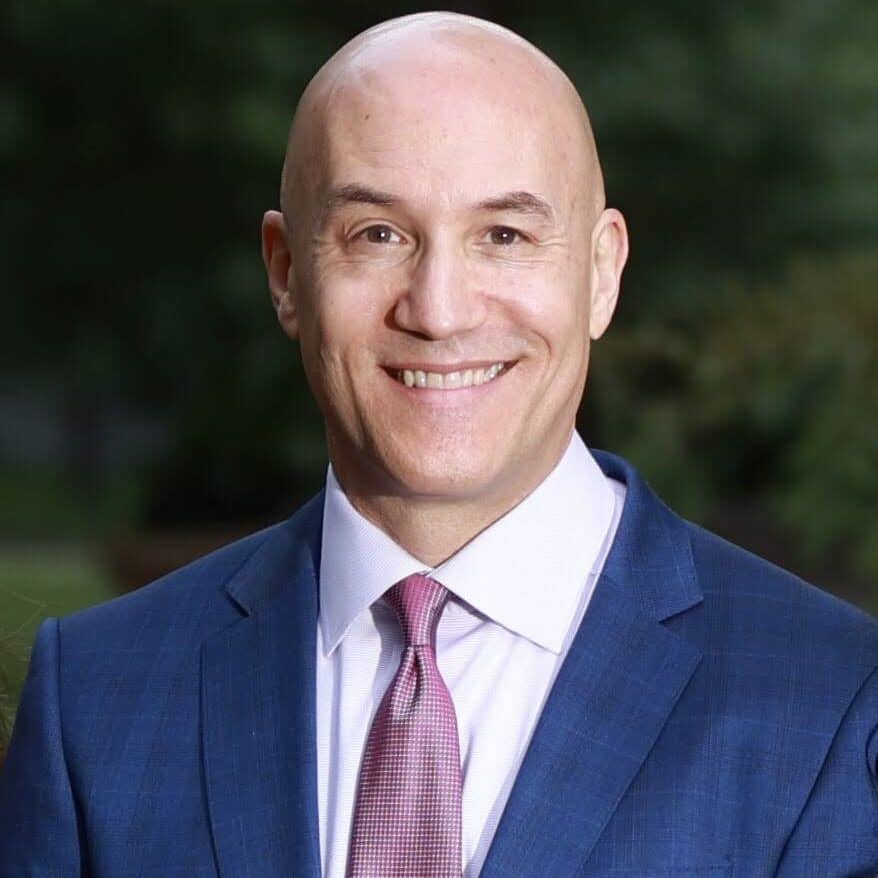Wealthtender is a trusted, independent financial directory and educational resource governed by our strict Editorial Policy, Integrity Standards, and Terms of Use. While we receive compensation from featured professionals (a natural conflict of interest), we always operate with integrity and transparency to earn your trust. Wealthtender is not a client of these providers. ➡️ Find a Local Advisor | 🎯 Find a Specialist Advisor

Money is one of the most common sources of conflict in relationships. In fact, studies show that financial disagreements are a leading cause of stress and divorce among couples. But why is it so difficult for two people who love each other to align their financial values, habits, and goals? If you’ve found yourself asking, “Why can’t we get on the same page financially?” — you’re not alone. The truth is that financial conflict often runs deeper than just dollars and cents. It’s rooted in psychology, childhood experiences, and emotional patterns around money.
In this article, I’ll share my personal journey navigating financial disagreements in my marriage, the turning point that transformed our relationship, and the money mindset shifts that can help couples work through money-related tension. Whether you’re the financial decision-maker in your relationship or feeling unheard when it comes to money matters, you’ll discover tools and insights that can pave the way to healthier, more connected financial conversations.
Our Story: When Love and Money Collide
For over 20 years, my spouse and I clashed over how we approached money. As the self-proclaimed CFO of the family — with a degree in finance and years of experience in financial planning — I assumed I knew best. I created budgets, designed spreadsheets, downloaded the latest money apps, and even introduced the envelope system that my parents used when paying for everything with cash. But no matter what tools I used, nothing truly moved the needle. In fact, every time we talked about money, the tension only got worse.
Eventually, we hit a breaking point. Even casual conversations about finances sparked defensiveness, frustration, or silence. That’s when I knew we needed more than a new budgeting tool — we needed a new perspective. So, we hired a Certified Money Coach (CMC), and what we discovered completely changed the way we viewed our financial conflict.
Why Couples Struggle to Align on Money
What we learned was eye-opening: Our money beliefs were shaped long before we ever met. They were hardwired in childhood, influenced by our parents’ relationship with money, and reinforced by emotional experiences. While I believed I was being logical and responsible with money, I was actually operating from deeply ingrained behaviors formed during my upbringing — and so was my spouse.
The truth was, I wasn’t just trying to teach my spouse “how to manage money better.” I was unconsciously projecting my own fears, insecurities, and shame — and making her wrong for not seeing things my way.
The Turning Point: Emotional Intelligence Meets Financial Strategy
Our work with the money coach taught us something powerful: Financial harmony isn’t just about strategy — it’s about empathy. We both had to dig into the roots of our money beliefs, understand how they developed, and learn to recognize our emotional triggers.
That journey led me to pursue my own training as a Certified Money Coach. I now integrate this framework into my financial planning practice because I’ve seen firsthand how it transforms not just financial outcomes, but relationships.
Common Money Mindsets and How to Shift Them
If you’re struggling to communicate with your spouse or partner about money, it’s helpful to first identify your own dominant money mindset — and then learn how to shift it toward a healthier, more productive space. Here are four common patterns I see in couples (including myself) and how to begin transforming them:
“I am fearful and indecisive.”
Root Cause: Often stems from growing up in a household where money was scarce, uncertain, or used as a tool of control. This mindset leads to paralysis when making financial decisions.
How to Shift:
- Make a simple pros and cons list to assess financial choices objectively.
- Practice decision-making in small, low-stakes scenarios.
- Ask for guidance from a trusted financial advisor to build confidence.
- Journal your decision-making process to track your growth over time.
“I am impulsive.”
Root Cause: This behavior may develop as a way to cope with emotional highs and lows, boredom, or as a reward mechanism.
How to Shift:
- Pause and reflect before making a purchase: Is this a need or a want?
- Consider implementing a 24-hour rule for non-essential purchases.
- Focus on the long-term impact rather than short-term gratification.
- Celebrate restraint by redirecting impulsive energy into savings or meaningful experiences.
“I am greedy.”
Root Cause: This belief can be rooted in scarcity — a fear that there will never be enough, leading to hoarding behaviors or an obsessive focus on accumulation.
How to Shift:
- Practice generosity, even in small ways, to cultivate a mindset of abundance.
- Volunteer or give to causes that resonate with your values.
- Reframe “wealth” as a tool for impact, not just accumulation.
- Explore your emotional relationship to “enough” and reflect on what true wealth means to you.
“I am overly indulgent.”
Root Cause: Often stems from associating spending with love, reward, or self-worth — especially if emotional needs were unmet in childhood.
How to Shift:
- Differentiate between “must-have” and “nice-to-have” purchases.
- Introduce delayed gratification: set a goal and save for the reward.
- Reflect on whether the purchase fulfills a need or fills an emotional void.
- Incorporate mindful spending techniques to stay grounded.
Healing Your Financial Relationship Starts with You
The biggest breakthrough in our journey was realizing that financial harmony begins with self-awareness. Before we could hope to get aligned as a couple, we had to uncover — and take responsibility for — our own emotional patterns around money. Once we did, our conversations became more collaborative, less judgmental, and productive.
It’s not about winning the financial argument or proving your way is the “right” way. It’s about creating a shared vision for your financial life, built on empathy, curiosity, and mutual respect.
Final Thoughts: Building a New Money Narrative Together
Money doesn’t have to be a wedge in your relationship. With the right mindset and tools, it can actually become a source of connection and growth. If you’re stuck in the same financial disagreements, don’t assume your partner just “doesn’t get it.” Instead, explore what shaped both of your money stories — and what new story you want to write together.
This article was originally published here and is republished on Wealthtender with permission.
About the Author

John Foligno, CMC® | Grand Life Financial
Wealthtender is a trusted, independent financial directory and educational resource governed by our strict Editorial Policy, Integrity Standards, and Terms of Use. While we receive compensation from featured professionals (a natural conflict of interest), we always operate with integrity and transparency to earn your trust. Wealthtender is not a client of these providers. ➡️ Find a Local Advisor | 🎯 Find a Specialist Advisor

